Caught in the Web of rumor and innuendo
By Zhang Lei and Yang Yang ( China Daily ) Updated: 2013-08-30 08:40:39Fabrications
One of Qinhuohuo's most infamous rumors was the story of an Italian tourist who was killed in a rail accident two years ago and whose family received compensation of 30 million euros ($40 million) from the Railway Ministry, a much higher amount than Chinese victims usually receive.
In an interview with China Central Television after his arrest, Yang Xiuyu explained that the driving force behind his fabrications and rumormongering was to make himself a hot online property as quickly as possible, thereby attracting advertisers to his micro-blog and increasing his influence.
Hong Daode, a professor of criminal law at China University of Political Science and Law, said some V celebrities are intentionally involved in spreading rumors and collaborate with companies that fabricate scandals, known in China as "water army" companies. These companies reward V celebrities who promote their products with handsome payouts.
"Companies reach out to micro-blog celebrities," said Jiazhuangzainiuyue, which means "Pretending to be in New York", who has 650,000 followers on Sina Weibo.
"PR companies used to contact me every day to post ads. They offered payment of 10,000 yuan ($1,635) to 20,000 yuan, but I declined," he said.
"Many people believe that there is a company behind me, but they obviously don't know about micro-blogs and haven't read my posts very carefully. My micro-blog is very personal and in order to prevent speculation that I'm a marketing micro-blogger, I've rejected every offer made by PR companies. However, they kept approaching me, even after I posted a micro-blog stating that I would not do online ads," he said.
When asked for his reaction to the cases of Qinhuohuo and Lierchaisi, Jiazhuangzainiuyue said, "I completely abhor rumors on micro-blog sites, because they severely disturb the media environment, which is precious and also fragile."
He admitted he worked as a journalist for several years and is still employed in the media industry. "So I know the importance of truth in news," he said.
Zhang Yun, a professor at Yunnan Normal University's School of Educational Sciences and Management, said social media networks provide people with the opportunity to access all the information posted online, thus it follows that most readers are likely to be influenced subconsciously.
Social media is exerting an increasing influence on the public, especially the younger generation who have grown up with widespread access to the Internet, according to Zhang. Therefore, comments made by Internet celebrities will likely alter people's perceptions of how the authorities have coped with major incidents, such as manmade or natural disasters. Internet celebrities should avoid disseminating dubious "facts" or comments, he added.
"Like the media, Internet celebrities should be cautious and aware that not all online posts are true," said Zhang.
Virtual vs real world
Prominent figures with millions of micro-blog followers have an obligation to boycott unconfirmed rumors, because their influence in the virtual world will have an effect in the real world, he said.
Jiazhuangzainiuyue is always extremely cautious. "As a result, before I forward news, I check on a search engine to discover the source and see if the story has been reported by authoritative media. If it comes from an online forum, I check the concrete time and place, if there are any corroborating photos, and if the story has been exaggerated. I then make a conclusion based on my research," he said.
The phrase "micro-blog celebrities" not only refers to established stars who are already famous and have millions of followers, such as pop and movie stars, but also those who have risen from anonymity by writing great jokes, reporting astounding news, passing impressive opinions or, in Qinhuohuo's case, concocting false rumors.
According to a report jointly published by the Chinese Academy of Social Sciences and Social Sciences Academic Press, rumor was the source of more than one-third of the 100 hottest micro-blog topics from January 2012 to January 2013. Moreover, a recent survey conducted by Legal Daily suggested that 51.7 percent of all Internet rumors in 2012 originated on micro-blogs, while message boards ranked second with 27. 6 percent.
In March 2012, a series of online rumors that could have posed a threat to social stability resulted in a three-day shutdown of the comment functions on Tencent and Sina Weibo, sites which have a combined user base of more than 500 million, according to the report.
At present, just 200 "mega-V" celebrities have more than 10 million followers each, while 300 "super-Vs" have more 1 million, and 100,000 V celebs have 19,000 followers.
"As Edward W. Said wrote in his book Orientalism, "an intellectual is a part of society and should address his concerns to as wide a public as possible", but many V celebrities are unable to restrain themselves when faced with the type of acquisitive society that is China at the present time," said Ge.
Hu Yongqi contributed to this story.
|
|
|
|
|
|
|
|

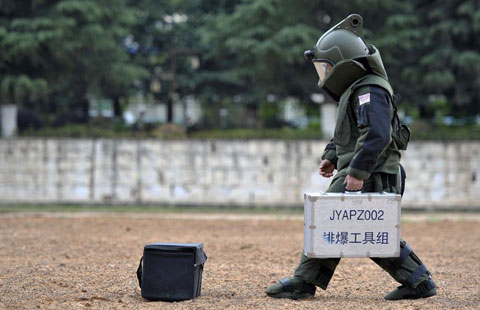

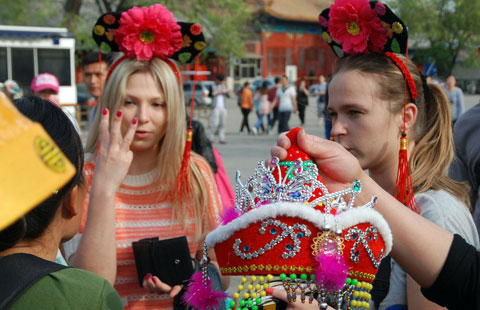



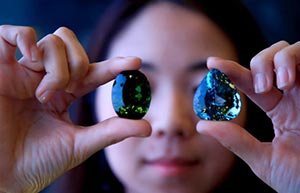


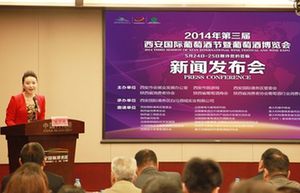
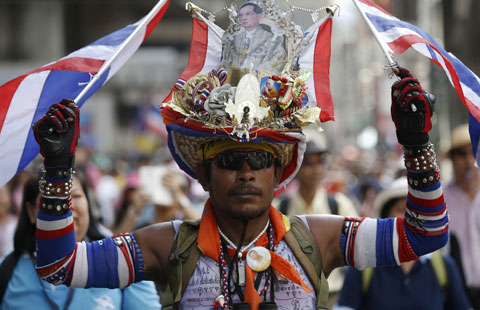






 Op Rana
Op Rana Berlin Fang
Berlin Fang Zhu Yuan
Zhu Yuan Huang Xiangyang
Huang Xiangyang Chen Weihua
Chen Weihua Liu Shinan
Liu Shinan